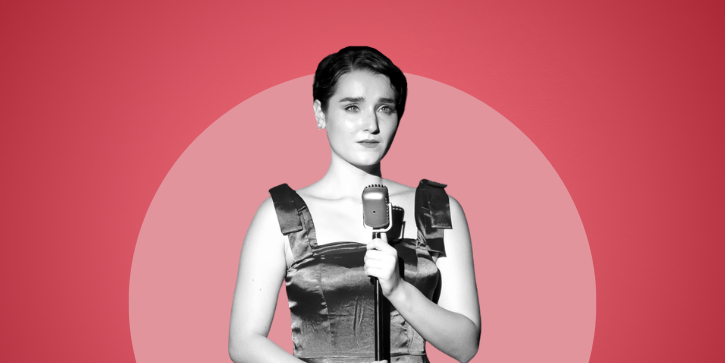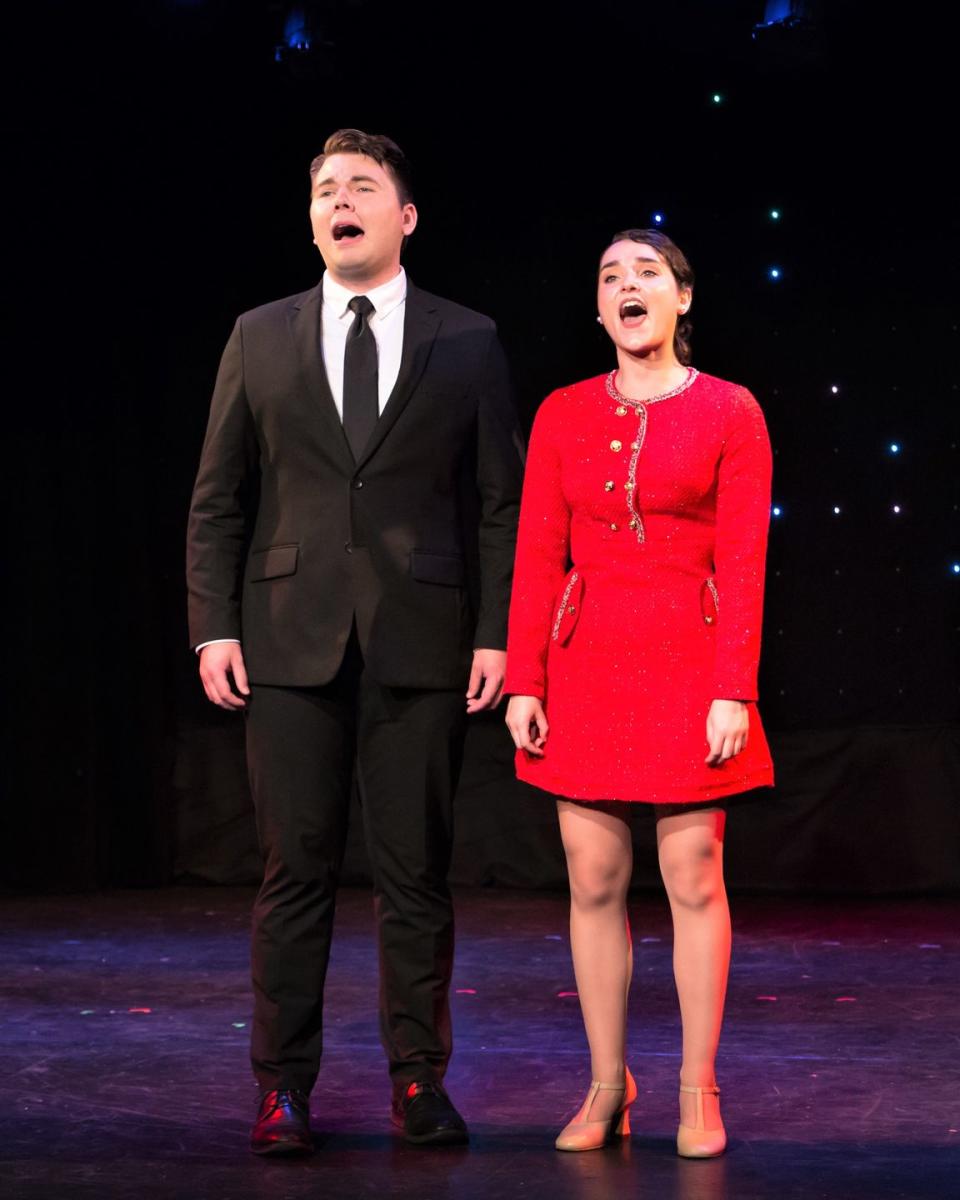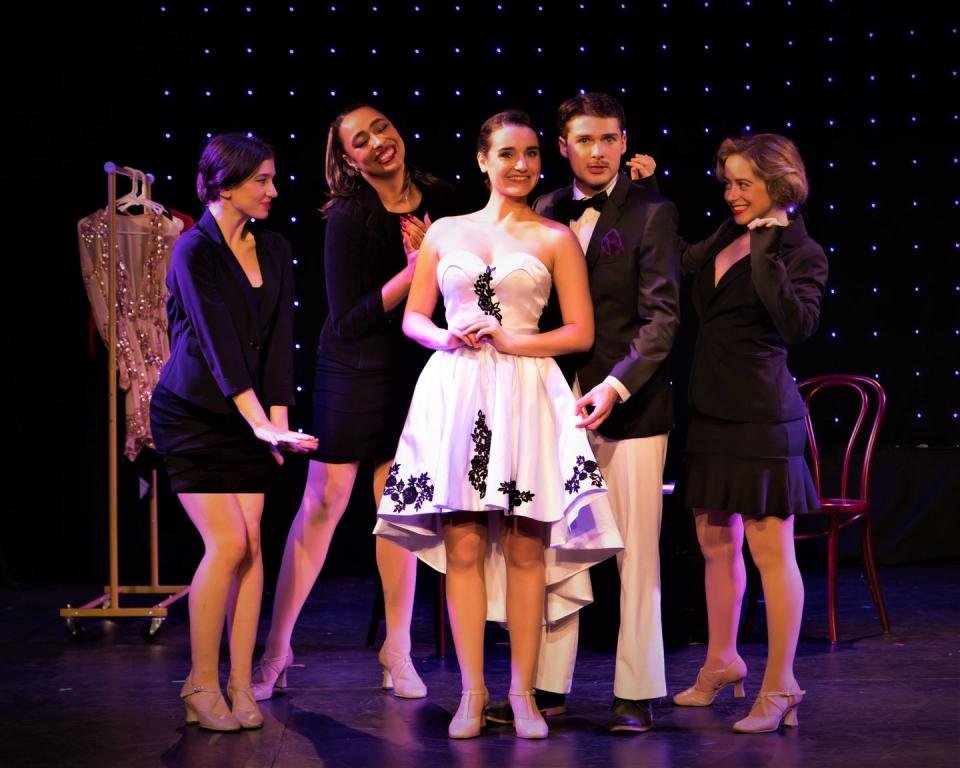A New Off-Broadway Show about Audrey Hepburn Reveals the Woman Beneath the Celebrity

- Oops!Something went wrong.Please try again later.
- Oops!Something went wrong.Please try again later.
Even 30 years after Audrey Hepburn’s death, the image of her playing Holly Golightly in a little black dress and oversized shades is a pop culture icon. But Hepburn was more than the role she made famous; she was a survivor of war, a former ballerina, a daughter, a wife, and a mother. And now, a new musical wants to capture who Hepburn was beneath her celebrity persona. Nestled between Cafe Wha? and the Comedy Cellar is The Players Theatre, a 200 seat Off-Broadway venue currently playing Audrey: The New Musical, which follows the titular actress during the peak of her fame.
The show begins with a screen test for Roman Holiday with Marina Yiannouris in the lead role, portraying Hepburn as she auditions for Princess Ann. From there, the performance chronicles both Hepburn’s career and her heartbreaks, detailing her relationships with both Bill Holden and Mel Ferrer.
Stories like Audrey’s are important, says writer and producer Danielle Moore. “It’s our cultural history,” she tells T&C when asked about the rising popularity of biopics and bio musicals. “You can see people dress up as Holly Golightly from Breakfast at Tiffany's but to understand the moment in time that caused someone to create that piece of art and understanding how it resonates today is why I think we are seeing that resurgence.”
Here, Moore describes her love for Audrey Hepburn and shares how her fascination with the actress inspired her to craft a new musical.
What made you want to interpret Audrey Hepburn’s life into a musical?
I know so many people who love Audrey Hepburn for different reasons. Back when I was writing, I was in the fashion space, so I know tons of people who know her from a pop culture perspective, but also from a fashion perspective as well. I also know people who are just total film buffs and come at it from that lens. Once I started writing, the first place I looked to was, okay, how do we juxtapose this untold story of her past? She grew up in Nazi-occupied Holland, and there’s all this seriousness and gravitas of that,but then totally contrast that with how frothy and fun the films that she starred in were, especially in the early part of her career. As her career progressed, the tone of her films changed and the things she was interested in doing definitely changed as well. So it was, how do we kind of find the connections to weave those two stories together and make a piece out of that?
Why does Audrey express her frustration with the men in her life in the show?
When I started digging deeper into Audrey’s personal life, it became really clear that she had multiple relationships with different men, and those relationships impacted her in different ways. She was kind of being pulled in different directions by all of them. The different relationships represented the different views of her that those men had, and I think, at the time, there was a struggle for them to see her as the full and complete person that she was. Those call-outs in the script are to remember that we can look at Hepburn as an icon—we can look at any woman from that era whose career is a big part of who they are—and recognize that the people pulling the strings, more times than not, were men. We think about the images of these women and how they were constructed and they were constructed by men.That must have been very frustrating to women who didn’t want to be considered one-dimensional. Audrey wanted a career, she wanted kids, and that is a struggle that women absolutely face today — and she had people jerking her around and telling her what to do.

Why did you make Audrey’s fashion a key focus of the play?
There is going to be a portion of the audience who knows her for her fashion and are coming from that world, and it was important to understand her personal relationship to fashion. In modern life, we talk a lot about things like self care and self image, the relationship between how you present yourself to the world and what you get out of life. For Audrey it was so much about how clothes gave her confidence. It was a well known thing with her relationship with Givenchy, that she fought to have his clothes in her movies.
Tell me about the ending of the play. Why did you focus on a key moment in Audrey and Givenchy’s relationship?
The ending changed a million times but we finally, finally realized the ending had to be her and Givenchy because they were friends throughout her lifetime. Once we realized that the stopping point had to be when she wanted to move back to Rome, there’s this amazing full circle moment there because of her role in Roman Holiday and Givenchy had to be the one to see her off because he was so influential in her life, from the beginning of her career till the end.

Performances for Audrey: The New Musical run through August 28. Tickets are available at theplayerstheatre.com.
You Might Also Like

